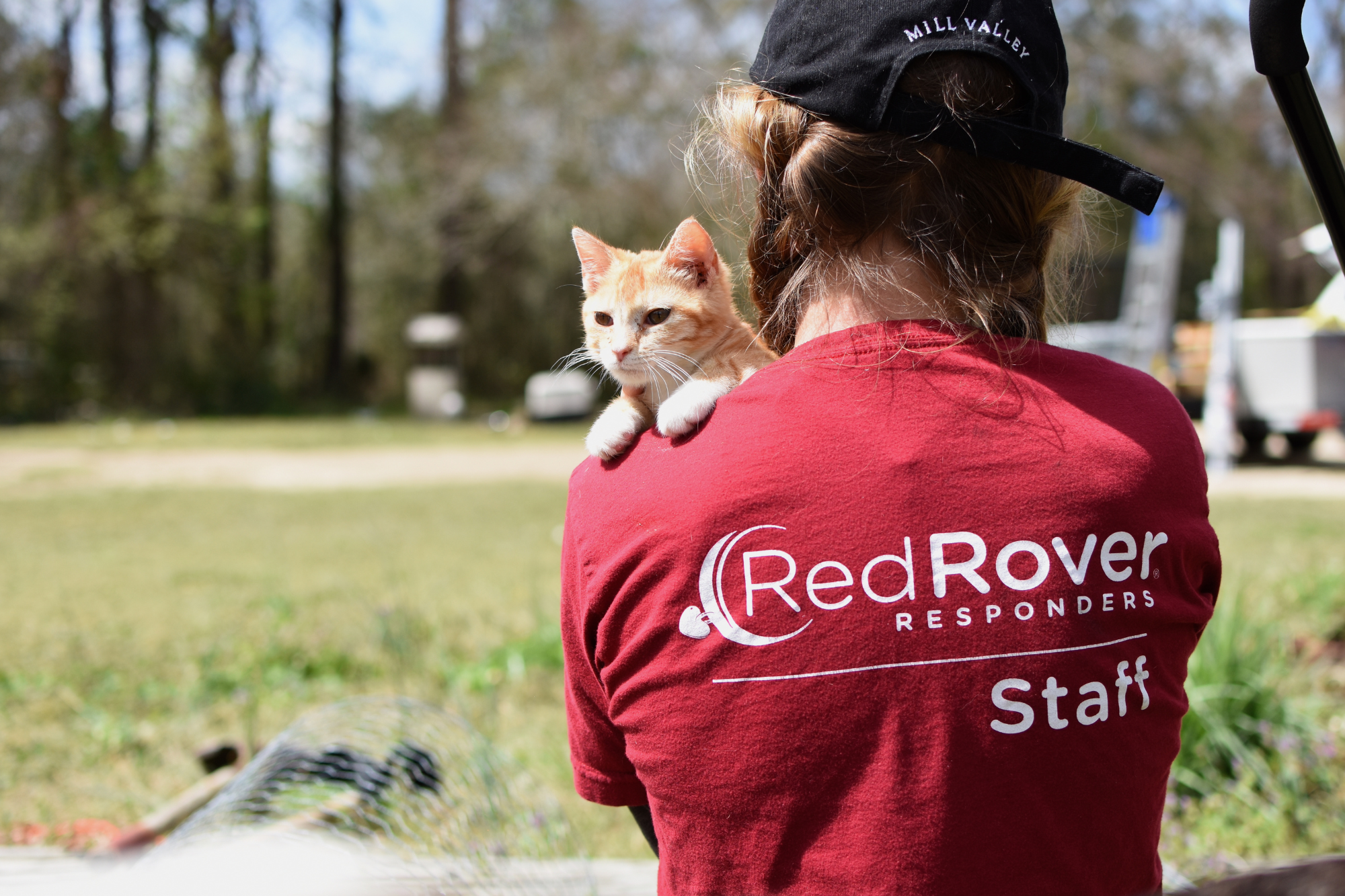Creating a pet housing program at your domestic violence or homeless shelter is a big and rewarding step! To ensure your new program runs smoothly, you’ll likely need to write a variety of new policies that outline the kind of care pets receive. A question that often comes up in these early conversations is, “Should we require that pets entering our program be spayed or neutered?” This question is complex, and we’ll explore it more in the following article. The short answer however, is, no — I generally don’t recommend making spay/neuter a requirement for entry into pet housing programs.
The issue comes down to something really simple – when you require that a pet be spayed or neutered to enter your program, you are creating a barrier to service. Now, some folks reading this (especially from the animal welfare community) may be bristling right now, but stick around to learn why.

Katie gets licked by a dog while on deployment at a domestic violence shelter build.
“When you require that a pet be spayed or neutered to enter your program, you are creating a barrier to service.”
The challenges surrounding spay and neuter requirements boil down to power and judgement. First, service providers, particularly domestic violence advocates, must consider the power dynamic at play whenever they interact with a client. Quite simply, we are exerting power and control when we create a spay/neuter requirement — removing the pet parent’s agency and their right to make decisions in the best interest of their pet.
When we encounter pet parents who do not want to spay or neuter their pets, we may feel some judgment towards them and how they care for their pet. When we approach pet parents with judgment, we are not approaching this work with empathy, compassion, and curiosity.
So, I ask you — what story might you be telling yourself about these pet parents?
Asking myself this question – “What story am I telling myself?” – grounds me and is my first step in checking my own beliefs, biases, and judgments when I find myself having that “gut” reaction. This technique has been transformative for me both professionally and personally. It provides me with the reminder that my story isn’t everyone else’s story and gives me room to say “okay, tell me more” to a person who is seeking assistance and services without judgment at a difficult time in their life. Both of these are essential to communicating with respect and curiosity.
Still with me? Okay, good. Because I DO suggest that you provide information and support for spay/neuter. By making this a non-judgmental conversation focused on meeting a family where they’re at, we’re building relationships centered on trust and giving that pet parent the power to make their own decision for their family member. We create the opportunity to have meaningful conversations around the benefits of spay/neuter (like increasing the pets’ life span or reducing a number of significant health risks).
And, make it FREE! One of the biggest challenges for spay/neuter services is cost and access. We hear from many partner shelters that when they choose not to require spay/neuter but instead, offer information and support, the majority of pet parents elect to move forward with the procedure — they simply didn’t have the means to do so before.
Remember, at the end of the day, the goal is to keep pets and their people safe and together. When we center our programming around this idea, we build respectful and long-lasting relationships with our pet parents. Building this kind of relationship with a pet parent will go a long way as you work with this family unit to get them to their long-term (and personally determined) success.
Want to learn more about the benefits of spay/neuter and other basic veterinary care? Check out our blog What is Basic Veterinary Care.
Thanks for sticking with me!
Katie Campbell is the President and CEO of RedRover. She holds a Masters of Science degree in Sociology from California State University, Sacramento, and has spent 10+ years working in social services. Katie has spoken at several national conferences, including the National Organization for Victim Assistance, National Coalition Against Domestic Violence, and the Institute on Violence, Abuse, and Trauma.



